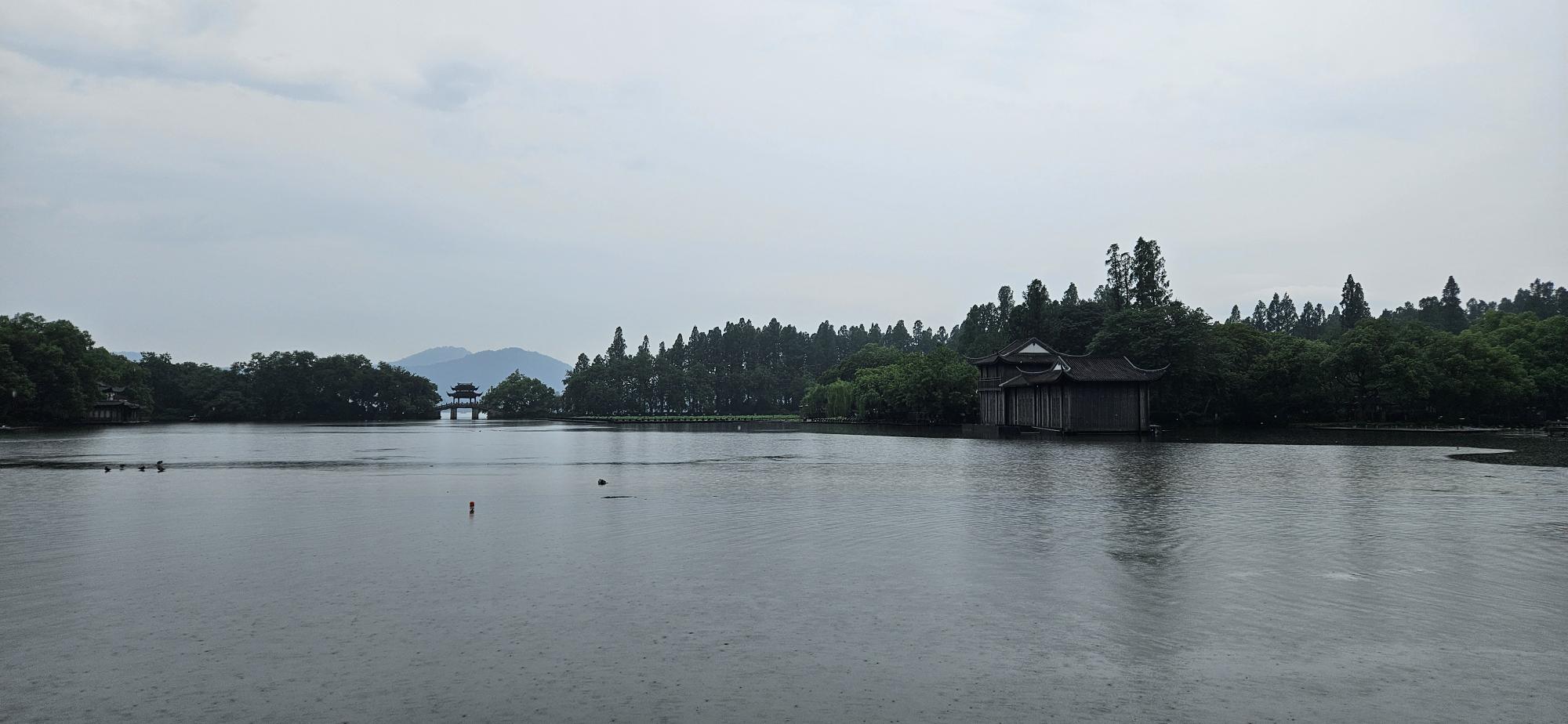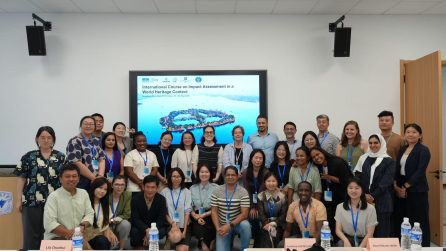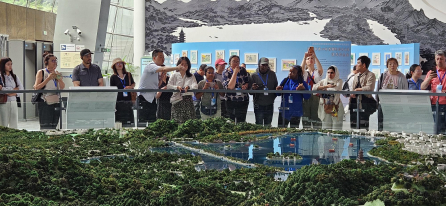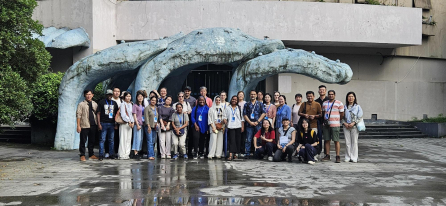ICCROM, through its ICCROM-IUCN World Heritage Leadership (WHL) programme and the World Heritage Institute of Training and Research for the Asia and the Pacific Region under the auspices of UNESCO (WHITR-AP Shanghai), successfully delivered the International Course on Impact Assessment in a World Heritage Context in a hybrid format that took participants from theory to practice.
The course brought together 25 professionals from across the globe – China, Cambodia, India, Indonesia, Iran, Kenya, Malaysia, Republic of Korea, Romania, Saudi Arabia, Spain, Sri Lanka, Tajikistan, Timor Leste, Zambia, UAE – to build their capacities in using impact assessment as a tool for effective planning and decision-making in World Heritage management.
Strengthening World Heritage capacity in three phases
Structured over three integrated phases, the course began with a self-paced online component featuring theoretical lectures and interactive Q&A sessions from 10 to 18 March 2025. This was followed by submission of mandatory assignments focusing on national legal frameworks for World Heritage and Impact Assessment.
For the final phase, participants joined an in-person, hands-on course, held onsite from 19 to 23 May 2025 at the World Heritage site of West Lake Cultural Landscape of Hangzhou. This immersive learning experience, implemented with the support of the West Lake Scenic Area Management Committee and in collaboration with Tonji University and the Shanghai Tongji Urban Planning & Design Institute Co., Ltd., allowed course participants to translate theory into practice by evaluating fictitious project proposals in the context of a real World Heritage site.
From theory to real-world application at West Lake
In Hangzhou, participants worked together to assess the potential impacts of three fictitious development projects, using the methodology outlined in the Guidance and Toolkit for Impact Assessments in a World Heritage Context. By applying this toolkit to the context of West Lake Cultural Landscape, participants learned to identify and evaluate potential impacts and propose viable alternatives and mitigation measures to improve the proposed projects.
The use of fictitious projects anchored in a real World Heritage site and the collaborative environment of working in groups, facilitated critical thinking, cross-cultural exchange, and peer-to-peer learning, which allowed participants to develop well-informed impact assessments. These practical exercises built directly on the foundational knowledge gained from the online phase, ensuring all participants arrived in Hangzhou ready to put in practice a baseline knowledge of World Heritage management and impact assessment implementation.
Enhancing global heritage protection through cooperation
This course marked a significant milestone in ICCROM’s and WHITR-AP Shanghai’s shared commitment to capacity building in the field of World Heritage and impact assessment. Since 2012, ICCROM and WHITR-AP Shanghai have developed 8 courses on impact assessment that brought together 166 participants from 58 countries.




